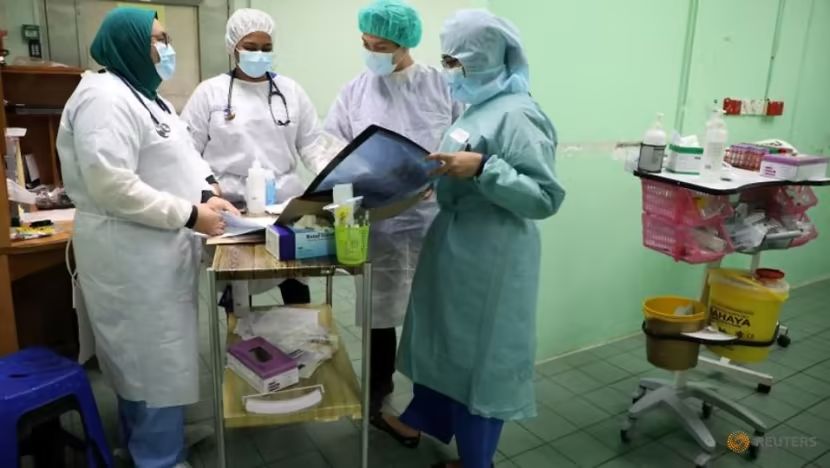Malaysia healthcare capacity stretched with long waiting times, manpower shortage: Reports
16 February, 2023

The issue of public hospital capacity has come under the spotlight in Malaysia once more, with local media reports of hospitals overflowing with patients and long waiting lines at emergency departments.
This comes even after the worst of the COVID-19 pandemic is over.
Back then, it was widely reported that the healthcare system was reaching its breaking point in dealing with patients suffering from COVID-19.
The issue has come to the fore again, with Malaysian daily The Star reporting recently of claims that public healthcare facilities in the country were again stretched with a high number of patients.
The issue may be made worse, with reports of unplanned strikes by healthcare workers to air their dissatisfaction with their working conditions.
HOSPITALS STRETCHED THIN, LONG WAITING TIMES
Last month, a Twitter account of a group championing the rights of contract doctors that goes by the handle @HKontrak shared a photo of a packed emergency department at Hospital Kuala Lumpur.
The post claimed that patients had to wait for more than 24 hours before being admitted to the hospital. It added that there were also about 100 patients waiting to be seen at the emergency department. The Star also reported that some emergency departments in other parts of the country were facing overcapacity, with patients having to wait for at least two days to get a hospital bed.
It reported that in a government hospital in Sabah, the wait time could go up to two days or even beyond four to five days.
Most recently, a psychiatric patient became agitated and stabbed an elderly man at Selayang Hospital in Selangor on Tuesday, after being left at the hospital’s accident and emergency department while waiting for a bed to become available.
Earlier in February, Malaysia’s Health Minister Zaliha Mustafa said that emergency departments (ED) at public hospitals were severely overwhelmed.
“Frontline staff here are struggling because patients who were supposed to be admitted were stuck in ED. Delays in admissions have an adverse domino effect,” she wrote on Twitter after making a field visit to public emergency departments, adding that the issues faced by the public emergency departments were “inherited and systemic”.
HEALTHCARE WORKERS’ CONCERNS NOT ADDRESSED
The Malaysian Medical Association (MMA) president Muruga Raj Rajathurai has since called on the government to seriously address the issues raised by public healthcare workers.
The New Straits Times reported on Wednesday quoting Dr Muruga as saying that the issue of reforms should not be the sole responsibility of the health ministry, but also of the finance ministry and the Public Service Department (PSD).
"Many of the issues, especially involving its human resources, will require budgeting and planning by the Finance Ministry and the PSD. Members of Parliament from both sides of the divide should also support efforts to reform the healthcare system," Dr Muruga said.
He added that among the issues that need to be addressed include overcrowding at the healthcare facilities, manpower shortages, as well as the issue of underpaid and overworked workers. There were also not enough permanent positions to provide doctors on contract with secure employment, the New Straits Times reported Dr Muruga as saying.
"The alarm bells on the healthcare system and its human resources being stretched to the limit have been ringing for years. In the last four years, there have been three changes in government.
With every new cabinet line-up and administration, there was renewed hope but none were able to resolve their issues,” Dr Muruga was quoted as saying by the New Straits Times.
Separately, former deputy health minister Lee Boon Chye said that the bureaucracy at the PSD has slowed down the hiring processes for staff members at the health ministry.
Dr Lee was quoted as saying by The Star that the health ministry has to do an internal study on needs and financial implications before they are able to hire permanent healthcare staff members. The proposal is then tabled to the Cabinet before being submitted to the finance ministry and ultimately PSD.
The whole process, he told The Star, may take years to complete from the time when a healthcare facility submits a request for additional workers.
“This is the reason why there is a situation of overcrowding, long waiting times for patients to see doctors or specialists at public hospitals. But at the same time, many contract doctors cannot get permanent posts,” said Dr Lee as quoted by The Star.
HEALTH OFFICIALS WARY OF POTENTIAL STRIKE
Amid rumours of an unplanned strike by healthcare workers in Malaysia over dissatisfaction with their work conditions, the country’s health director-general has urged them to not compromise on their patients’ safety.
“We know the hospital issues and dissatisfaction among the officers, but make sure they do not compromise patients’ safety,” Dr Noor Hisham Abdullah was quoted as saying by the New Straits Times.
Separately, Dr Zaliha has called on those planning to go on strike to meet with her to discuss the issue.
In a video uploaded to her TikTok account on Wednesday, Dr Zaliha said that workers going on the unplanned strike will not solve the problems in the healthcare system.
“We need (you) to understand that (going on strike) will not solve the problems. Instead, we should come face-to-face (to discuss),” she said.
Useful Links:
Source: www.channelnewsasia.com
TAG(s):
